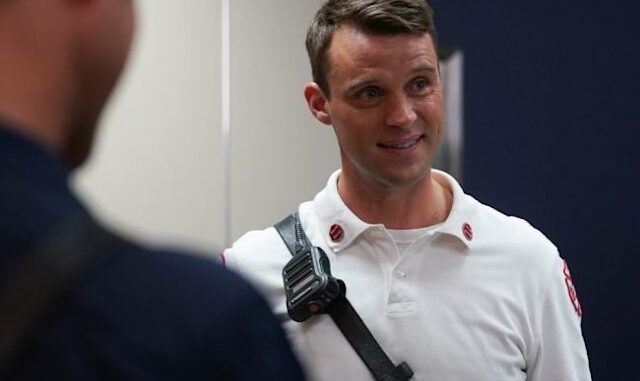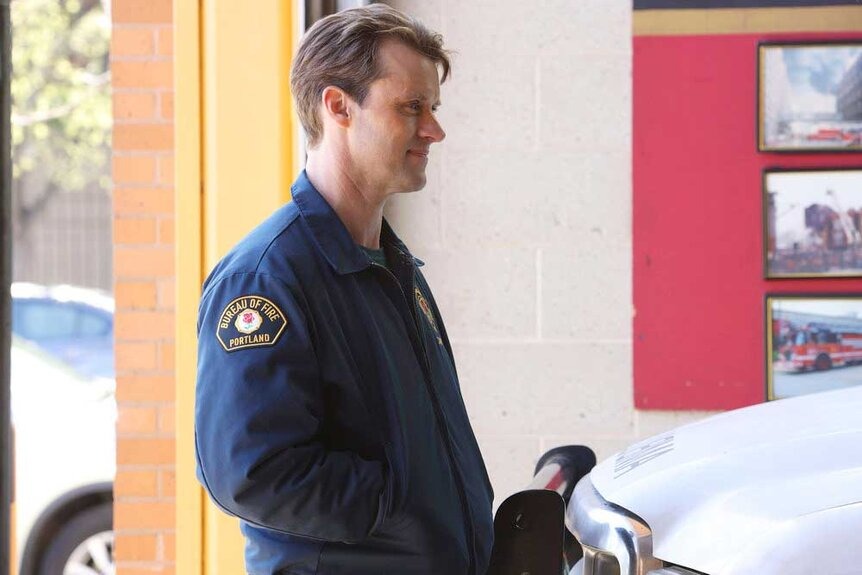
Lieutenant Matthew Casey (Jesse Spencer) has long been a symbol of integrity and heroism on Chicago Fire. For over 200 episodes across ten seasons, Casey served as the steady presence Firehouse 51 relied upon to navigate chaos, resolve conflicts, and lead with courage. His calm demeanor and ability to rise to the occasion made him a fan favorite and a central figure in the show’s success.
Despite his legacy as a voice of reason, Casey is not without flaws. Even heroes make mistakes, and one moment in Season 7, Episode 7, “A Closer Eye,” left fans questioning his judgment and whether the beloved character took things a step too far.
A Reckless Rescue That Raised Eyebrows
Throughout the series, members of Firehouse 51 have occasionally made impulsive decisions in the heat of the moment, but Casey’s actions in this particular episode stand out. The episode begins with the team responding to a distress call about a maintenance worker trapped in an elevator shaft. The malfunctioning elevator threatens to crush the worker at any moment, creating a dire, high-stakes situation.
Rather than devising a collaborative rescue plan with his crew, Casey takes it upon himself to slide into the narrow shaft to save the worker. The decision, while brave, borders on reckless as he puts his own life in immediate danger. Though he manages to rescue the worker and survive, the act leaves his teammates stunned and frustrated by his disregard for safety protocols.
Why Did Casey Act So Recklessly?
Casey’s uncharacteristic behavior can be attributed to his personal struggles at the time. In the aftermath of Gabby Dawson’s (Monica Raymund) departure for Puerto Rico at the end of Season 6, Casey is grappling with the collapse of his marriage and the emotional toll it has taken on him. His impulsive dive into the elevator shaft could be seen as a reflection of his inner turmoil and an attempt to reclaim a sense of control amidst the chaos in his personal life.

While the emotional rationale adds depth to the character, it also raises questions about his ability to separate personal issues from professional responsibilities. Casey’s decision may have made for dramatic television, but it felt jarring for a character known for his level-headedness and adherence to safety standards.
Out of Character or a Sign of Humanity?
For many fans, Casey’s rash actions seemed out of character. As the moral compass of Firehouse 51, he has consistently led by example, emphasizing teamwork and calculated decision-making. This moment of recklessness, while understandable given his personal struggles, contrasts sharply with the qualities that made him such a respected figure in the firehouse.
However, others view the incident as a reminder that even the most composed leaders are human. Casey’s vulnerability and emotional conflict added complexity to his character, highlighting the immense pressure first responders face both on and off the job.
Casey’s Legacy and Growth
Although Casey eventually moved to Oregon to begin a new chapter in his life, moments like this continue to spark debate among fans. Was his impulsive decision a rare lapse in judgment or a sign of deeper emotional struggles that needed addressing?
Regardless, Casey’s legacy as a hero and leader remains intact. This incident, while controversial, underscores the challenges faced by firefighters and the delicate balance they must maintain between personal lives and professional duties.